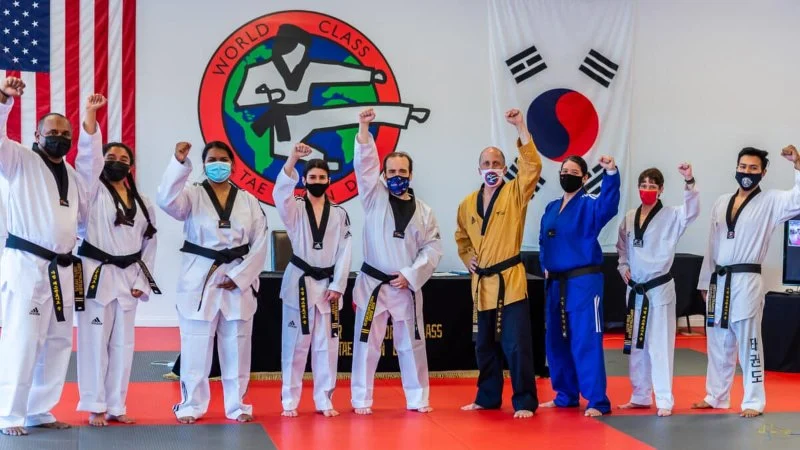
- Introduction to Tae Kwon Do
- The Cultural Significance of Tae Kwon Do
- How Tae Kwon Do Fosters Cultural Exchange
- Real-Life Examples of Tae Kwon Do Promoting Cultural Exchange
- The Benefits of Tae Kwon Do in Cross-Cultural Settings
- Tae Kwon Do Events and Initiatives Promoting Global Understanding
Introduction to Tae Kwon Do
Tae Kwon Do is a Korean martial art that has gained worldwide recognition for its combination of powerful striking techniques and philosophical teachings. While it’s well-known for its dynamic kicks and combat applications, Tae Kwon Do also has a deep cultural and ethical foundation that emphasizes respect, discipline, and self-improvement.
Founded in the 1950s by General Choi Hong Hi, Tae Kwon Do has grown into one of the most practiced martial arts globally. Its unique approach to combat, combined with its cultural values, makes it an ideal tool for promoting cultural exchange and fostering international understanding.
The Cultural Significance of Tae Kwon Do
At its core, Tae Kwon Do is more than just a sport or a means of self-defense—it’s a cultural ambassador. It carries with it centuries of Korean tradition, philosophy, and values, which are shared with practitioners worldwide. The principles of respect, humility, and perseverance are fundamental to the practice of Tae Kwon Do, making it a powerful tool for bridging cultural divides.
By teaching not only physical techniques but also the philosophy behind these movements, Tae Kwon Do encourages participants to adopt a mindset of peace, understanding, and mutual respect. This cultural aspect makes it uniquely positioned to promote cross-cultural exchange, as practitioners from different backgrounds learn about Korean culture while developing their martial arts skills.

Kwak’s Taekwondo / kwak taekwondo
Blue BellMontgomery CountyPennsylvania
1510 Dekalb Pike, Blue Bell, PA 19422, USA
How Tae Kwon Do Fosters Cultural Exchange
Tae Kwon Do’s global reach and appeal are key factors in its ability to foster cultural exchange. Here’s how it accomplishes this:
- International Tournaments: Tae Kwon Do tournaments and competitions bring together athletes from diverse countries and cultures. These events not only showcase the skill and artistry of the sport but also serve as platforms for cultural exchange, where participants can interact, share experiences, and learn from one another.
- Cross-Cultural Training: Many martial arts schools around the world offer Tae Kwon Do classes, and practitioners often have the opportunity to train with instructors and fellow students from different cultures. This shared training experience breaks down cultural barriers and promotes unity through a common goal.
- Global Seminars and Workshops: International seminars and workshops offer opportunities for practitioners to learn from masters from Korea and other countries. These events often include discussions about the cultural and philosophical aspects of Tae Kwon Do, enhancing participants' understanding of Korean traditions and values.
Through these avenues, Tae Kwon Do creates connections between people from different cultural backgrounds, helping to bridge gaps and build friendships across borders.
Real-Life Examples of Tae Kwon Do Promoting Cultural Exchange
One notable example of Tae Kwon Do fostering cultural exchange is the World Taekwondo Federation’s (WT) annual events, where countries from all continents participate in friendly competition and cultural sharing. These events encourage collaboration between countries and offer participants a chance to experience different cultures, promoting mutual respect and understanding.
Another example is the collaboration between the United States and Korea through Tae Kwon Do programs for youth. Many American schools have partnered with Korean martial arts academies to introduce students to the art of Tae Kwon Do. Through these exchanges, American youth not only learn martial arts but also gain insight into Korean culture, traditions, and values. These cross-cultural exchanges help foster respect and appreciation for diversity.
Additionally, the global spread of Tae Kwon Do has led to the establishment of cultural centers and embassies that use martial arts as a means of connecting people worldwide. These centers serve as hubs for both learning martial arts and exploring the rich cultural history of Korea.
The Benefits of Tae Kwon Do in Cross-Cultural Settings
Practicing Tae Kwon Do in a cross-cultural setting offers numerous benefits, including:
- Increased Cultural Awareness: As students learn Tae Kwon Do, they are exposed to Korean culture, language, and traditions. This exposure helps increase awareness and appreciation of cultural differences, fostering empathy and understanding.
- Strengthened Communication Skills: Practitioners from diverse backgrounds often find themselves working together in a collaborative environment. This enhances their communication skills and helps break down language and cultural barriers.
- Improved Global Friendships: The shared love of Tae Kwon Do creates a sense of camaraderie among participants, making it easier to form lasting friendships across borders. These friendships often extend beyond the dojo and evolve into collaborations in business, education, and other fields.
By practicing Tae Kwon Do in a global context, individuals develop skills that are not only valuable for their personal growth but also for fostering a sense of international community and mutual respect.
Tae Kwon Do Events and Initiatives Promoting Global Understanding
Various initiatives and events have been designed to promote Tae Kwon Do as a tool for cultural exchange. One such initiative is the World Taekwondo Peace Corps, which sends Tae Kwon Do practitioners and instructors to underserved communities around the world. By teaching Tae Kwon Do, they not only improve the physical and mental well-being of individuals but also introduce them to the values of peace, respect, and cultural exchange that are central to the martial art.
Additionally, events like the Taekwondo World Championships and the World Taekwondo Grand Prix bring together the best athletes from across the globe, creating an international platform for cultural exchange and mutual respect through sport.
These initiatives show how Tae Kwon Do goes beyond mere competition—it is a powerful force for global unity, helping to connect cultures through a shared passion for martial arts and mutual respect.
If you're interested in exploring Tae Kwon Do and experiencing the benefits of cultural exchange, check out [Jeuns TKD Hub], where you can find a variety of resources, classes, and products to help you get started on your martial arts journey!
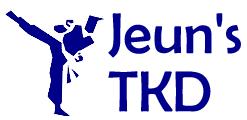

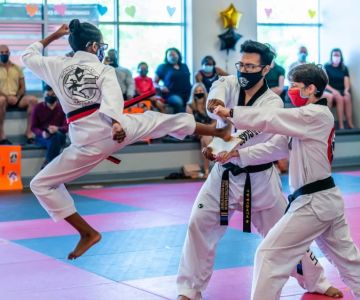
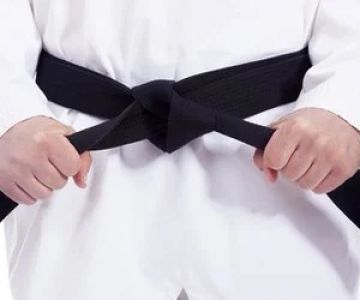
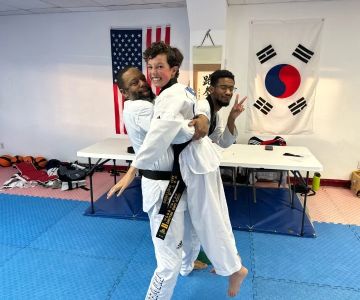
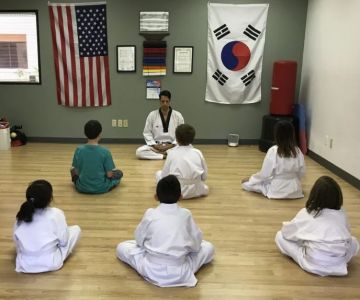
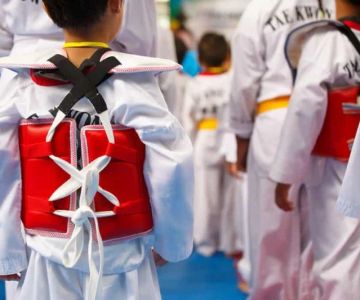
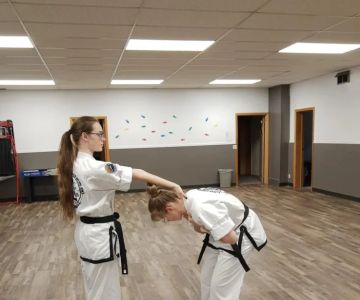
 Byram Karate Academy5.0 (1 reviews)
Byram Karate Academy5.0 (1 reviews)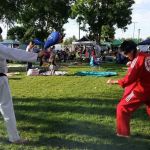 Tiger Lee's World Class Tae Kwon Do5.0 (29 reviews)
Tiger Lee's World Class Tae Kwon Do5.0 (29 reviews) Kenny's Karate School3.0 (9 reviews)
Kenny's Karate School3.0 (9 reviews)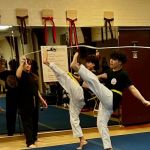 Corona Taekwondo Club5.0 (6 reviews)
Corona Taekwondo Club5.0 (6 reviews)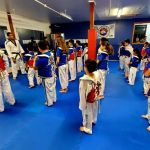 Team Raposa East Hanover Martial Arts / Black-K5.0 (9 reviews)
Team Raposa East Hanover Martial Arts / Black-K5.0 (9 reviews) Fire and Water Martial Arts4.0 (23 reviews)
Fire and Water Martial Arts4.0 (23 reviews) How to Execute a Jumping Roundhouse Kick to the Head
How to Execute a Jumping Roundhouse Kick to the Head How to Execute a Double Kick Combination in Sparring
How to Execute a Double Kick Combination in Sparring How to Perform a Flawless Axe Kick: A Step-by-Step Guide
How to Perform a Flawless Axe Kick: A Step-by-Step Guide DIY Tae Kwon Do Training Equipment for Home Practice
DIY Tae Kwon Do Training Equipment for Home Practice How to Increase Your Vertical Jump for Tae Kwon Do Flying Kicks
How to Increase Your Vertical Jump for Tae Kwon Do Flying Kicks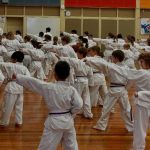 The History of the Tae Kwon Do Peace Corps
The History of the Tae Kwon Do Peace Corps